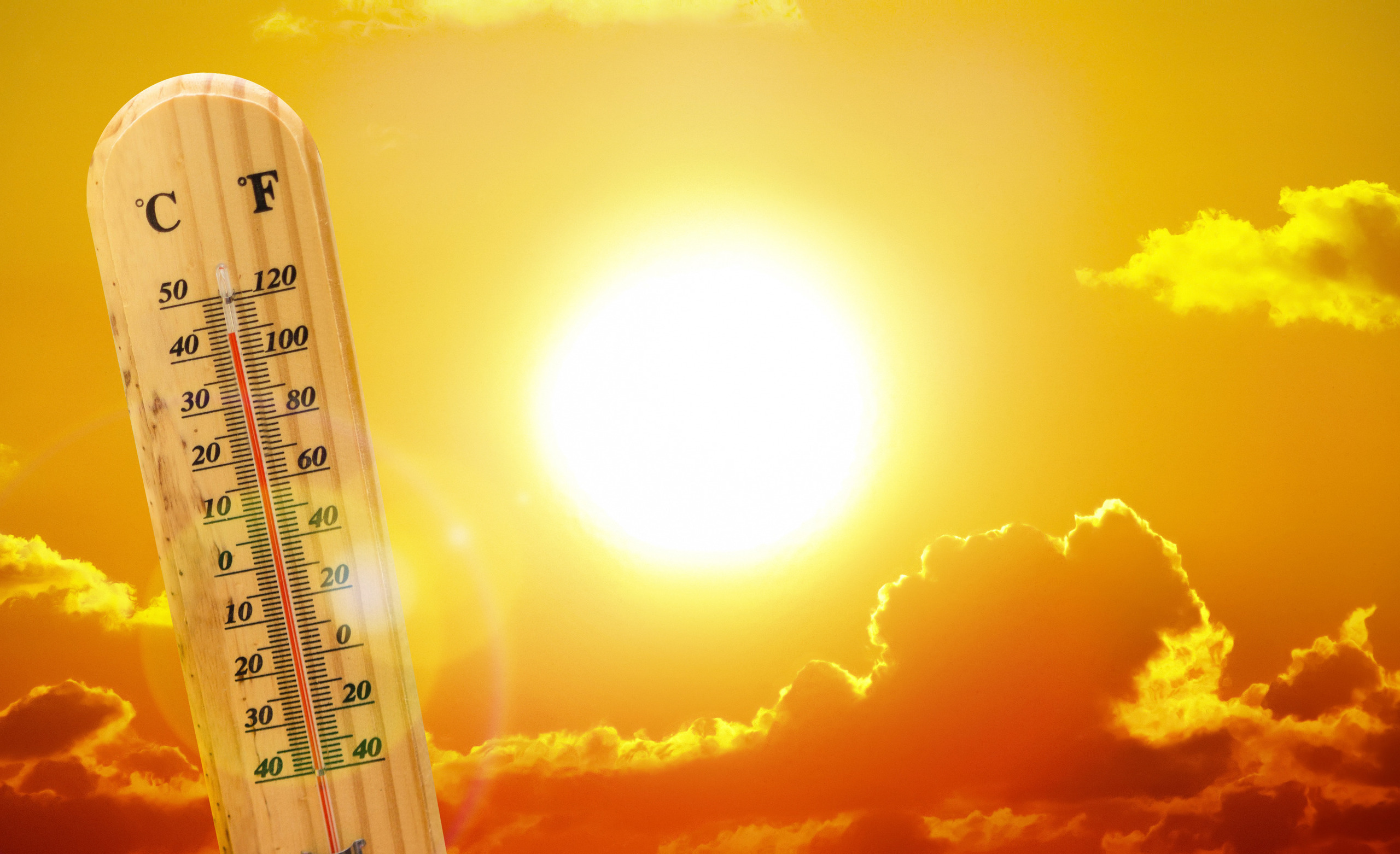
How To Survive In A Heat Wave
Welcome to our ultimate guide on how to survive in a heat wave. Feeling the heat? Brace yourself as we dive into essential tips on surviving a scorching heat wave!
Whether you’re basking in the summer sun or seeking refuge indoors, knowing how to stay safe and cool is key. Let’s explore the ins and outs of navigating extreme temperatures and keeping your cool when the mercury rises.
Definition of a Heat Wave
A heat wave isn’t just your average sunny day – it’s a prolonged period of excessively hot weather that can push temperatures to extreme levels. While the threshold for what constitutes a heat wave varies by region, it typically involves temperatures soaring above normal averages for an extended period.
These sweltering conditions can pose serious health risks, especially for vulnerable populations like the elderly, children, and those with certain medical conditions. Heat waves are not only uncomfortable but also potentially life-threatening if proper precautions aren’t taken.
During a heat wave, cities may implement emergency measures such as opening cooling centers or issuing advisories to help residents stay safe. Understanding the definition of a heat wave is crucial in recognizing when you need to ramp up your efforts to beat the scorching heat and protect yourself from its harmful effects.
Understanding the Dangers of Heat Waves
Heat waves are no joke – they bring extreme temperatures that can pose serious risks to our health and well-being. When the mercury rises, it’s essential to understand the dangers that come with prolonged exposure to high heat.
One of the most significant threats of a heat wave is dehydration. The scorching sun can quickly sap your body of essential fluids, leading to dizziness, fatigue, and even heat exhaustion or heatstroke if not addressed promptly.
Furthermore, excessive heat can also exacerbate existing health conditions like asthma or heart problems. It puts extra strain on our bodies and may trigger complications for those already vulnerable.
Additionally, prolonged exposure to high temperatures can result in sunburns and skin damage. It’s crucial to protect yourself with sunscreen and appropriate clothing when heading outdoors during a heat wave.
Understanding these dangers is key to staying safe and healthy when facing extreme heat – always prioritize your well-being during challenging weather conditions!
Preparing for a Heat Wave
As the temperatures rise and a heat wave approaches, it’s vital to be prepared to stay safe and comfortable during this extreme weather event. Start by creating a plan for how you will handle the heat – know where you can go to cool off if needed. Prepare an emergency kit with essentials like water, non-perishable food, medications, and first aid supplies.
Stay informed about the weather forecast so you can make necessary arrangements ahead of time. Consider installing fans or air conditioning units if possible. Stock up on sunscreen and lightweight clothing to help protect your skin from sunburns.
Ensure that your home is well insulated to keep cool air inside and hot air out. Keep curtains closed during the hottest parts of the day to maintain a cooler indoor temperature. Don’t forget about your pets either – provide them with plenty of water and shade in case of a heat wave impacting them as well.
By taking these proactive steps, you’ll be better equipped to handle whatever challenges a heat wave may bring your way.
Staying Safe During a Heat Wave
When the temperatures soar during a heat wave, it’s crucial to prioritize your safety. One of the key ways to stay safe is by staying indoors during the hottest parts of the day. If you must go outside, try to do so in the early morning or evening when it’s cooler.
Wear lightweight, loose-fitting clothing that is light in color to help reflect sunlight and heat. Always remember to apply sunscreen with a high SPF before going out to protect your skin from sunburn.
Keep your living space cool by using fans or air conditioning if possible. Stay hydrated by drinking plenty of water throughout the day and avoiding sugary or alcoholic beverages that can dehydrate you.
Check on elderly relatives, neighbors, or other vulnerable individuals who may need assistance during extreme heat. By taking these simple precautions, you can help ensure your safety and well-being during a heat wave.
Coping with the Effects of Extreme Heat
Feeling the effects of extreme heat can be overwhelming and draining. Your body may struggle to regulate its temperature, leading to symptoms like dizziness, fatigue, and even heat exhaustion or heatstroke. It’s crucial to recognize these signs early on and take action promptly.
One way to cope with extreme heat is by staying indoors during the hottest parts of the day. If you must go outside, try to do so in the early morning or evening when temperatures are cooler. Wear lightweight, loose-fitting clothing and drink plenty of water to stay hydrated.
You can also create a DIY cooling station at home by using fans, ice packs, or taking cool showers. Additionally, avoid strenuous activities during peak heat hours and listen to your body’s cues for rest.
Remember that everyone reacts differently to high temperatures; it’s important not only for yourself but also those around you to stay vigilant and proactive in managing the effects of extreme heat.
Tips for Staying Cool and Hydrated
As temperatures soar during a heat wave, it’s crucial to stay cool and hydrated to ensure your well-being. One effective tip is to drink plenty of water throughout the day, even if you don’t feel thirsty. Hydration is key in helping your body regulate its temperature and prevent dehydration.
Another helpful strategy is to avoid excessive outdoor activities during the hottest parts of the day. If you must be outside, seek shade or carry an umbrella for protection from direct sunlight. Wearing lightweight, loose-fitting clothing made from breathable fabrics can also help keep you cool.
Additionally, consider using fans or air conditioning to create a comfortable indoor environment. Taking cool showers or baths can provide instant relief from the heat as well. And don’t forget about cooling accessories like ice packs or damp towels placed on pulse points.
In terms of food choices, opt for light meals that are easy to digest and high in water content such as fruits and vegetables. Limiting alcohol and caffeine intake is advisable since they can contribute to dehydration. By incorporating these tips into your routine, you’ll be better equipped to navigate through a heat wave with ease.
The Importance of Checking on Vulnerable Individuals
During a heat wave, it’s crucial to remember the importance of checking on vulnerable individuals. Elderly people, young children, pregnant women, and those with pre-existing medical conditions are particularly at risk during extreme heat.
These individuals may have a harder time regulating their body temperature or recognizing when they are becoming overheated. Additionally, some may not have access to air conditioning or be able to afford cooling measures.
Reaching out to neighbors, family members, or friends who fall into these categories can make a significant difference in ensuring their well-being during a heat wave. Simply offering to help them stay cool by providing water, ice packs, or arranging for a cooler environment can go a long way in preventing heat-related illnesses.
By checking on vulnerable individuals regularly and offering assistance when needed, we can all contribute to creating a safer community during challenging weather conditions like heat waves.
Conclusion
Stay safe during extreme heat by being prepared, staying hydrated, and looking out for those who may be more vulnerable. By understanding the dangers of heat waves and taking proactive measures to cope with the effects of extreme heat, you can survive even the most scorching days.
Remember, it’s essential to prioritize your health and well-being when temperatures rise. Take care of yourself and others around you, and together we can weather any heat wave that comes our way.



